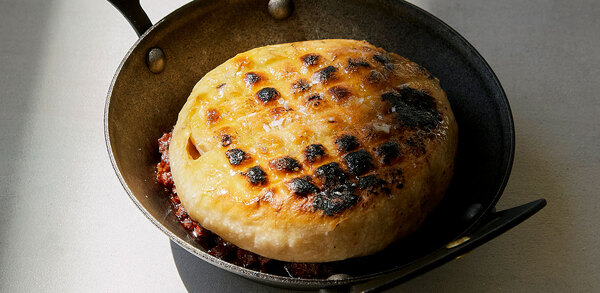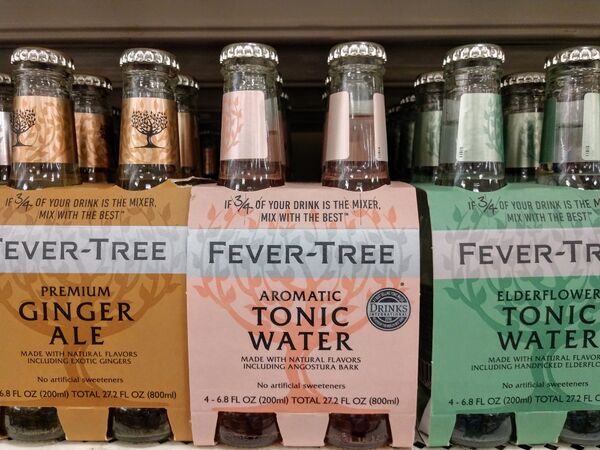Meat and poultry: rest assured
With a number of food assurance schemes in operation, caterers could be forgiven for a certain amount of confusion about what they mean in terms of standards of food quality and animal welfare. John Porter reports.
Customers picking up the autumn 2010 menu at pub carveries operated by Orchid Group have a wide choice of Red Tractor assured dishes - as well as up to six different roast meats on the carvery counter. The menu includes dishes such as shepherd's pie, burgers and tandoori chicken featuring the increasingly familiar logo.
Orchid is far from the only restaurant group promoting food assurance schemes for its meat and poultry. For instance, at KFC outlets customers are told that the company uses only Grade A farm-assured chicken. So why do multiple operators see a marketing advantage in serving food that meets assurance standards? Sarah Thomas, head of food at Orchid Group, says: "We had a belief that provenance and traceability were important to our customers, and that has proved to be the case. We were the first national pub group to get Red Tractor accreditation and we're now in our fourth year with it."
This year has seen Orchid take the Red Tractor logo to dishes on the menu at several of its other concepts, including its Freehouse Dining pubs which offer two-for-one menus and are focused very much on value-for-money. "I think there's sometimes a perception at the more price-conscious end of the market that there must be a compromise on food quality, and by featuring Red Tractor dishes it offers customers reassurance," says Thomas.
Even if consumers are reassured, caterers could be forgiven for a certain amount of confusion in the face of questions about what such schemes actually mean in terms of standards of food quality and animal welfare.
Almost every sector of British food production set up an assurance scheme in the 1990s, in the wake of food scares such as BSE in beef and salmonella in poultry. Schemes are industry owned and run, rather than government-set standards.
One factor which is sometimes unclear, at least as far as consumer perceptions are concerned, is the issue of animal welfare. Assurance standards were put in place to address food safety issues and manage the production process. Meat and poultry assurance schemes include standards for issues such as living conditions, transport and slaughter of animals, based on principles established by the Farm Animal Welfare Council, but have no specific brief to guarantee animal welfare.
RECOGNISABLE MARK
Phil Davis, trade marketing manager for beef and lamb marketing body EBLEX, makes the point that assurance schemes set standards for factors such as traceability, production methods, transport and supplies, "but ultimately assurance doesn't define a quality product".
The Red Tractor scheme was launched in 2000 with the aim of creating a recognisable consumer mark covering assurance schemes across different sectors. "Red Tractor provides assurance for the consumer in terms of a set of standards that slightly exceed the minimum legal requirements," says Davis.
The EBLEX scheme, covering English beef and lamb, remains separate to the Red Tractor standards. "We bolt on the little bit extra that relates to the eating quality of the end product," adds Davis.
The Food Standards Agency (FSA) was originally given the remit of monitoring assurance schemes, although a 2002 review by the FSA found that schemes were at different levels of development and there was "limited coherence" between them.
This prompted a revamp in the ownership of Assured Food Standards (AFS), the not-for-profit company set up to administer the Red Tractor standard. Initially set up by the National Farmers Union, its stakeholders were expanded to include the Ulster Farmers' Union, the Meat and Livestock Commission and Dairy UK.
A 2008 report by the FSA found that revision of governance of AFS had led to substantial improvement, with assurance schemes having increased their conformance with FSA guidelines significantly.
Assured chicken standards fall within the remit of AFS and Red Tractor, and the Quality British Turkey mark was brought under the Red Tractor umbrella in 2007. The BPEX scheme, covering British pork, agreed a licensing deal with AFS this year, so that from April 2010 the BPEX Quality Mark is being replaced by the Red Tractor mark.
ANIMAL WELFARE
BPEX food service trade manager Tony Goodger says: "Caterers have been seeing a move from QSM to Red Tractor from suppliers over recent months, and the job is ongoing. Because there is absolutely no difference between the Red Tractor and the QSM, BPEX remains totally committed to promoting those standards of assurance."
The RSPCA set up its Freedom Foods scheme to address animal welfare standards specifically, seeing this as a shortcoming of the supply chain approach of assurance schemes. It is now actively promoting the standard to the catering industry.
Orchid Group is among the companies that have taken up the RSPCA scheme, serving Dingley Dell pork from Suffolk with the Freedom Foods logo in some of its pub concepts. "With Red Tractor and Freedom Foods, we don't see it as a question of ‘either or'; the two work very well together," says Thomas.
Concern about there being too many assurance schemes is misplaced, insists Goodger at BPEX. "It's far better that there are standards out there and that consumers and caterers have the choice to buy assured products. There is still an awful lot of meat out there which isn't assured."
Goodger expects food assurance standards to increasingly become tied in with environmental standards such as the Leafmarque, which promotes environmentally responsible farming, "as the issues around sustainability become even more important".
Demand for assured food is clearly growing. The latest BPEX research shows that 67% of local authorities providing school meals now source Red Tractor produce, up from 55% in 2009 and 43% in 2008.
Defra, which in the wake of this year's General Election has taken over responsibility for overseeing food assurance standards, makes the point that the Coalition Agreement includes a commitment that food procured by government departments and, eventually, the whole public sector, meets British standards of assured production, and while not committing to a particular scheme, cites schemes such as Red Tractor, Quality Meat Scotland and Freedom Foods as examples of relevant standards.
LIFE CYCLE
Under EU law, assurance schemes only need cover the final 90 days of an animal's life. In practice, different schemes have different requirements. The Pork Quality Standard Mark covers the whole life of the animal, while Assured British Turkey standards apply from 72 hours old - the technical definition of "day-old". Assured chickens have to be hatched or reared on assured farms.
The standards for beef and lamb use the 90-day minimum. The Red Tractor logo means an animal has been born and raised on British farms, although not necessarily on assured farms. Assured Food Standards says that, in practice, "the majority of animals will spend considerably more than just 90 days on the Red Tractor farm, including some which will spend their whole life on the one farm".
Phil Davies, trade marketing manager at EBLEX, said: "We'd all like whole life assurance but, in practice, it would restrict the movement of livestock which is essential to the industry. Many farmers buy animals to ‘finish' - for example, there's a lot of beef sold as Scotch beef that was born and reared in the North of England. Those farmers may not always be able to buy from an assured farm."
KEY SCHEMES
**Red Tractor
**Assured Food Standards (AFS) administers the scheme, with Red Tractor Standards for chicken, pork, beef and lamb. The standards require livestock producers to meet all of the needs of their animals. Assured British Turkey, BPEX Quality Standard, Quality Meat Scotland (QMS), Farm Assured Welsh Beef and Lamb (FAWL) and the Northern Irish Beef and Lamb Farm Assurance (NIBL-FQAS) are independent of AFS, but products certified in these schemes can be labelled with the Red Tractor logo.
www.redtractor.org.uk
**The EBLEX Quality Standard
**A scheme for beef and lamb, it has a substantial degree of crossover with the Red Tractor standards, encompassing food safety, animal welfare and care for the environment. The EBLEX Quality Standard adds to this by including additional eating quality requirements.
www.eblex.org.uk
**Genesis QA
**Allows members producing in more than one sector to become assured through one integrated assessment. It has modules covering arable, beef and lamb, dairy and pig production. Its standards cover methods of production, animal welfare, traceability, legislation, food safety and environmental issues. Genesis QA standards are deemed to be equivalent to Assured Food Standards so that food from producers in the Genesis QA scheme can use the Red Tractor logo.
www.genesisqa.com
**Freedom Foods
**Set up by the RSPCA, with welfare standards covering every aspect of animals' lives, including feed and water provision, living conditions, how they are managed, healthcare, transport and humane slaughter.
www.rspca.org.uk/freedomfood
**British Poultry Council
**Assurance standards for chicken and turkey are now included within the Red Tractor scheme. An assurance scheme for ducks was launched this year, audited by an independent inspection body, SAI Global Farm Assurance, and not currently part of the Red Tractor Scheme. Standards for geese are in development. www.poultry.uk.com
SUPPLIER ACTION
Catering butcher Nigel Fredericks received its Red Tractor licence in March 2010, and all its beef, lamb, pork, poultry and turkey are now Red Tractor assured. The company is also part of the EBLEX QSM scheme.
Technical manager Carmel Anderson says that "traceability and authenticity of British products" were the main issues of customer concern, which the business has addressed through working with assurance schemes, and expects demand to continue to grow "as consumers are demanding to know the provenance of the food they are purchasing".
Jane Severn, purchasing manager at Beacon Purchasing, also says suppliers are investing in higher level accreditation schemes in line with demands from consumers.
"As a purchasing consortium, we require that all our meat and poultry suppliers hold, as a minimum, British Retail Consortium accreditation. This provides our members with the assurance that their purchases uphold industry standards in terms of HACCP, quality management systems and strict production controls."
The **DBC Foodservice **range of local, freedom and UK foods all carry recognised marks of assurance such as Red Tractor, RSPCA Freedom Foods and free range.
Ian Phillips, category manager for cooked meats, says he expects that, in the future, consumers will be asking increasingly about farm-to-fork traceability, but adds: "Introducing traceability into a restaurant's food offering is only half of the story - restaurants need to inform the consumer with clear signposting in menus, brochures, on websites and within signage."
Bernard Matthews Foodservice supplies 100% British turkey products and cares for its birds on its own farms across Norfolk, Suffolk and Lincolnshire in line with the Farm Animal Welfare Council's Five Freedoms. Each farm is Quality British Turkey and Assured Foods Standards (Red Tractor) certified.
Given the interest in buying British, **Plusfood's **food service manager UK, Les Webb, is keen to point out that the suggestion that all meat and poultry sourced from overseas is inferior is misguided.
"Our quality assurance programme incorporates the Total Quality Management system which ensures quality across our entire operation, particularly in the tracing of raw materials which come via fully integrated chain partners that comply fully with our stringent requirements. Furthermore, we consider the Five Freedoms defined by the Farm Animal Welfare Council to be our basic level of welfare practice and we exceed all five."
Only Grade A chicken is used in production at the Love Joes Foodservice factory in the West Midlands which has British Retail Consortium accreditation. A proportion of products carry the Red Tractor logo and the company is also licensed as a processor by Red Tractor.

















